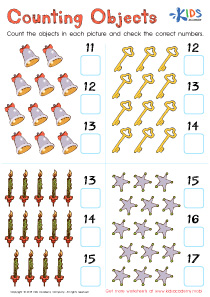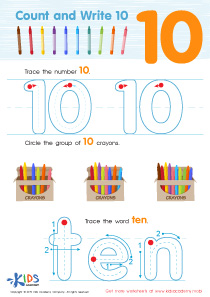Fine Motor Skills Normal Numbers 0–10 Worksheets for 4-Year-Olds
4 filtered results
-
From - To
Enhance your 4-year-old's fine motor skills with our engaging Numbers 0–10 worksheets! Perfectly curated to support young learners, our worksheets focus on developing precise hand movements while introducing basic number concepts. Each activity combines fun tracing practices with colorful illustrations, fostering hand-eye coordination and number recognition. Ideal for preschoolers, these carefully designed exercises help children build the essential foundation for writing and counting. Download and print our worksheets today to give your child a joyful learning experience that sets them up for academic success. Ideal for parents and educators alike, our resources are the perfect stepping stone for confident learners.
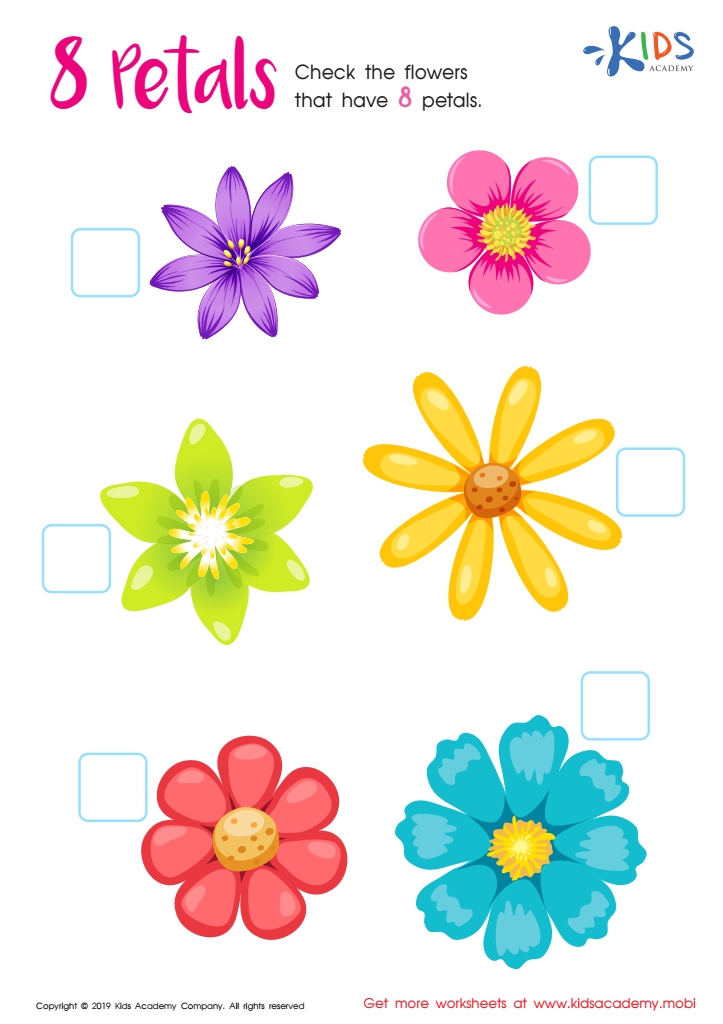

8 Petals Worksheet
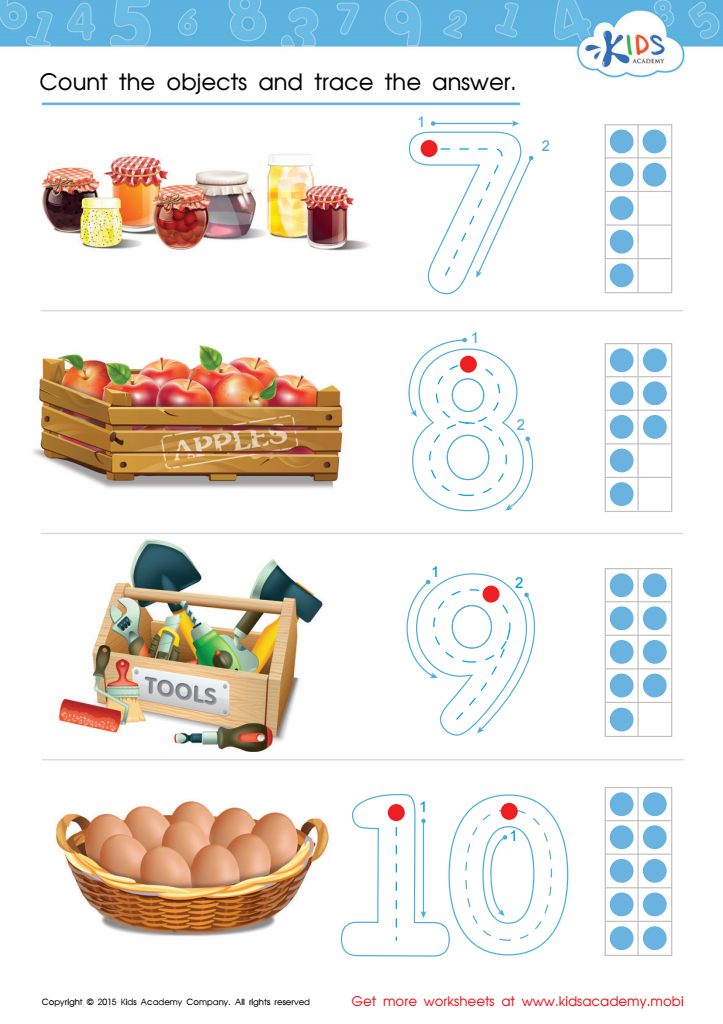

Count and Trace 7 – 10 Worksheet
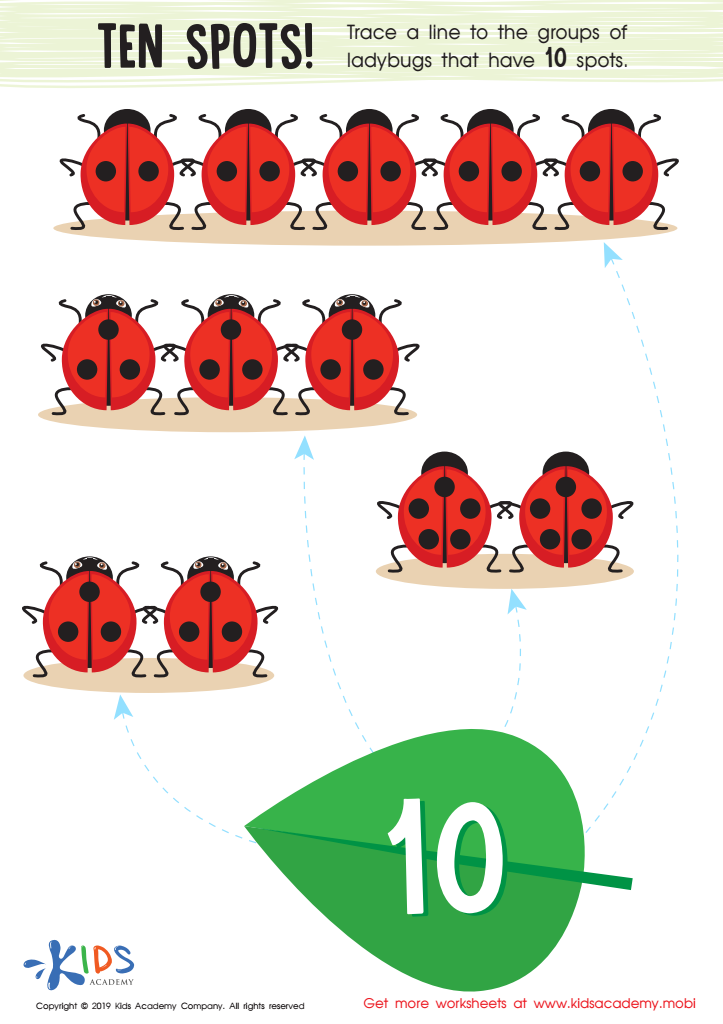

Ten Spots Worksheet


Frog Countdown Worksheet
Fine motor skills are essential for 4-year-olds because they involve the precise coordination of small muscles, particularly in the hands and fingers, which are crucial for many daily tasks. When children develop fine motor skills by practicing drawing, coloring, or manipulating small objects, they lay the foundation for more complex activities such as writing, cutting with scissors, buttoning clothes, and tying shoelaces.
Tracking normal numbers 0-10 for 4-year-olds is significant as it supports early numeracy skills. At this age, children are beginning to recognize and comprehend numbers and their relationships. Fine motor skills enable them to draw numbers, which reinforces their cognitive understanding and memory of numbers. This interrelation aids in building a solid mathematical foundation necessary for later academic success.
Parents and teachers play a pivotal role. When they care about these skills, they provide various engaging activities like puzzles, playdough, and hands-on counting games, facilitating growth in both fine motor skills and early numeracy. This awareness helps to identify any developmental issues early, allowing for timely intervention. By fostering an environment that nurtures fine motor skills and numerical understanding, parents and teachers ensure that children meet developmental milestones, enhancing their confidence, independence, and lifelong learning abilities.
 Assign to My Students
Assign to My Students









